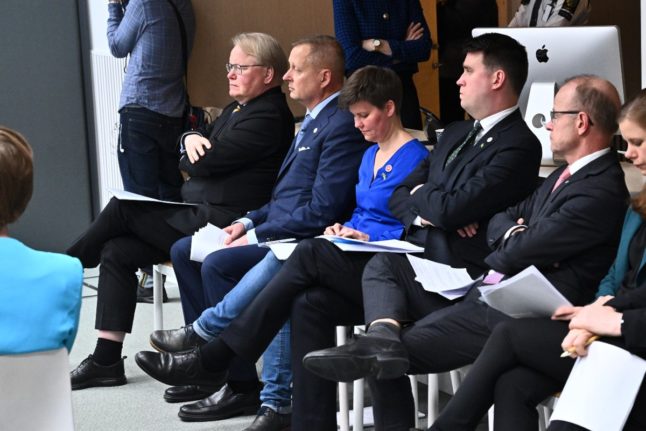Turkish news outlets have reported that a delegation from Sweden’s Ministry of Justice will be in Turkey October 5th-6th, and that the scheduled talks will deal with “the extradition of criminal terrorists” from Sweden to Turkey. The Ministry of Justice confirmed to TT that this meeting would take place, and that it would involve senior officials rather than ministers.
Turkey has demanded that people it describes as “terrorist suspects” be extradited from Sweden and Finland. The Swedish government maintains that Swedish citizens cannot be extradited. Further, the Swedish government has pointed out that Swedish law, which applies in Sweden, is applied by an independent court system.
While non-Swedish citizens can be extradited, this can only happen when the extradition is in line with Swedish law and the European Convention on Extradition.
Sweden’s outgoing foreign minister Ann Linde said on Tuesday that the Nato talks with Turkey were “moving along nicely”.
“My judgement is that Turkey will say ‘yes’ to Swedish Nato membership, however, I do not know when that will be,” she said.
An agreement was signed in Madrid this June by Turkey, Sweden, and Finland, which has also submitted an application for Nato membership. Under that agreement, Turkey lifted its objections to the two countries’ Nato applications. Among the topics covered in that agreement were terrorism, arms exports, and extraditions.
Moderate Party leader Ulf Kristersson has said he will keep Oscar Stenström, the diplomat appointed by the Social Democrats to lead Sweden’s Nato process, in place when he takes over as Sweden’s new Prime Minister later this month.
Only two of Nato’s 30 members have still to ratify Sweden and Finland’s accession: Turkey and Hungary.



 Please whitelist us to continue reading.
Please whitelist us to continue reading.
Member comments